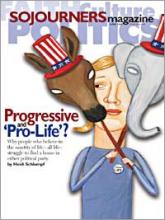My passage to motherhood was a circuitous one. As a single woman I felt pressure to get married; as a married woman I felt pressure to have a child. The reasons given were fairly explicit: continuity, productivity, success, vocation, and fulfillment. And, as some of my thoughtful associates told me, children are channels of hope in a world scant of it.
But knowing well that historical and contemporary forces and fates larger than the self influenced choice and sensibilities, I could not contemplate motherhood lightly. It was a lonely and isolating time as I moved among perplexed friends and against an impatient body clock. Ultimately, my mind encircled a lifelong condition of being and knowing: Grief.
I was born into an egregiously unequal society, in southern India. A world where even as a child I could easily connect the dots between those who had the advantage and those who did not. The house pets, servants, masters, and madams; vegetarians and non-vegetarians; Hindus, Muslims, and Christians; boys and girls; men and women; tenants and owners; rural and urban; fair-skinned and dark-skinned—all bore the marks of the social pox of "birth, rank, and hereditary influence." This intricate, sometimes subtle, frequently graphic apartheid was the mantle of my social inheritance. Later, my emigration to the United States and a loss of place through colonialism and globalization have further contributed to this state of grief.
So I contemplated motherhood well aware that the line between private matters and public affairs was faint and broken at many points. I could not take responsibility for bearing a child. It would be reckless to do so, and I was without confidence.
Read the Full Article

